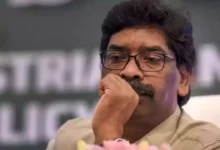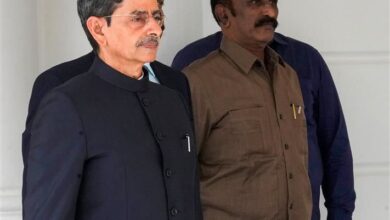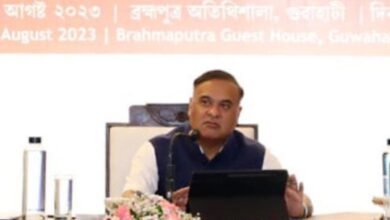According to V-C Pandit, JNU was never “anti-national” or a member of the “tukde tukde” gang
Jawaharlal Nehru University’s vice chancellor said on Thursday that the school would always promote dissent, discussion, and democracy and that it was never “anti-national” or a member of the “tukde-tukde” gang.

The Jawaharlal Nehru University (JNU) is “not saffronised,” according to Santishree Dhulipudi Pandit, the institution’s first female vice-chancellor, and the central government does not exert pressure on it in its day-to-day operations.
Pandit, a JNU alumna, acknowledged that there was division on campus during her tenure, calling the period “unfortunate.” She said that errors were made by the administration and students alike, and that the leadership mishandled the situation.
She said that she neither hides nor regrets her membership in the Rashtriya Swayamsevak Sangh (RSS).
Pandit, who talked extensively about her biography, including her birth in St. Petersburg, Russia, and her upbringing in a Chennai middle-class South Indian family, expressed her pride at being referred to as “the Sanghi VC who brought the highest QS rankings for JNU”.
“We ought to be above all of this (saffronization) as a university. JNU does not support any certain identity; it is for the country. “I always say that JNU stands for seven Ds: development, democracy, dissent, diversity, debate and discussion, difference and deliberation,” the speaker said. “JNU stands for inclusivity and development.”
When Pandit assumed the position of vice chancellor in 2022, the university was experiencing a wave of student unrest and was still reeling from the 2016 incident with purportedly anti-national sentiments being yelled on campus at an event. Members of the “tukde tukde” gang were associated with the students who were purportedly engaged in the slogan raising.
There were errors made at that time by both parties. In my opinion, the leadership made a mistake trying to manage it. Every university contains ten percent of fringe lunatics. Not only JNU is involved. It all comes down to leadership and how we deal with those who have strong opinions. In response to a query on the varsity’s perceived anti-national image, she said, “But I don’t think we are anti-national or tukde-tukde.”
“I believe that era was problematic, with errors made by both parties as a result of polarization and a lack of understanding on the part of the leadership…You have to accept that disagreements and arguments may arise. The college never had anti-national views. Even at the height of Left dominance when I studied (at JNU), no one was anti-national, according to Pandit.






